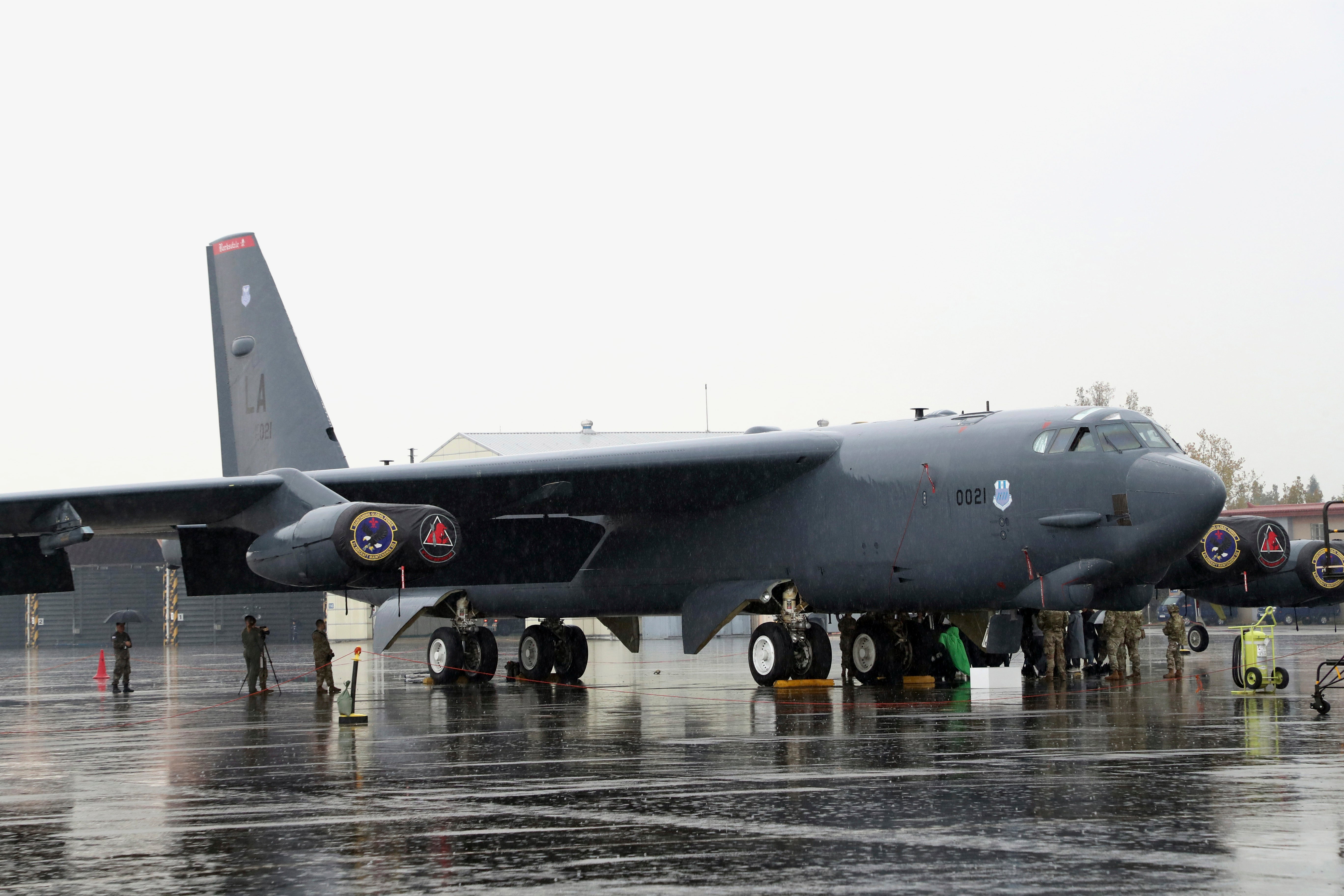South Korea, US and Japan hold first-ever trilateral aerial exercise in face of North Korean threats
The South Korean, U.S. and Japanese militaries have held their first-ever trilateral aerial exercise in response to evolving North Korean nuclear threats

Your support helps us to tell the story
From reproductive rights to climate change to Big Tech, The Independent is on the ground when the story is developing. Whether it's investigating the financials of Elon Musk's pro-Trump PAC or producing our latest documentary, 'The A Word', which shines a light on the American women fighting for reproductive rights, we know how important it is to parse out the facts from the messaging.
At such a critical moment in US history, we need reporters on the ground. Your donation allows us to keep sending journalists to speak to both sides of the story.
The Independent is trusted by Americans across the entire political spectrum. And unlike many other quality news outlets, we choose not to lock Americans out of our reporting and analysis with paywalls. We believe quality journalism should be available to everyone, paid for by those who can afford it.
Your support makes all the difference.The South Korean, U.S. and Japanese militaries conducted their first-ever trilateral aerial exercise on Sunday in response to evolving North Korean nuclear threats, South Korea’s air force said.
The training held near the Korean Peninsula was to implement the three countries’ earlier agreement to increase defense cooperation and boost their joint response capabilities against North Korean threats, the air force said in a statement.
The drill involved a nuclear-capable B-52 bomber from the United States and fighter jets from South Korea and Japan, the statement said.
South Korea and Japan are both key U.S. allies in Asia, which together host about 80,000 American troops.
The three countries have occasionally held trilateral maritime drills, such as anti-submarine or missile defense exercises, but Sunday’s training marked the first time for them to perform a trilateral aerial drill.
In South Korea, expanding military drills with Japan is a sensitive issue, because many still harbor strong resentment against Japan’s brutal 1910-45 colonial rule over the Korean Peninsula. But the North’s advancing nuclear program has pushed South Korea’s conservative president, Yoon Suk Yeol, to move beyond historical disputes with Japan and beef up a trilateral security cooperation with the U.S. and Japan.
In August, Yoon, U.S. President Joe Biden and Japanese Prime Minister Fumio Kishida met at Camp David in their countries’ first stand-alone trilateral summit and agreed to bolster their defense cooperation to deal with North Korea’s nuclear threats. The three leaders decided to hold annual trilateral exercises and put into operation by year’s end the sharing of real-time missile warning data on North Korea.
Sunday’s drill could draw a furious response from North Korea, which has long bristled at U.S. training exercises with South Korea, calling them an invasion rehearsal and responding with missile tests. The North slammed the Camp David agreement, accusing the U.S., South Korean and Japanese leaders of plotting nuclear war provocations on the Korean Peninsula. North Korean leader Kim Jong Un called Yoon, Biden and Kishida “the gang bosses” of the three countries.
Worries about North Korea’s nuclear program have deepened after it enacted a law that authorizes the preemptive use of nuclear weapons last year and has since openly threatened to use them in potential conflicts with the U.S. and South Korea.